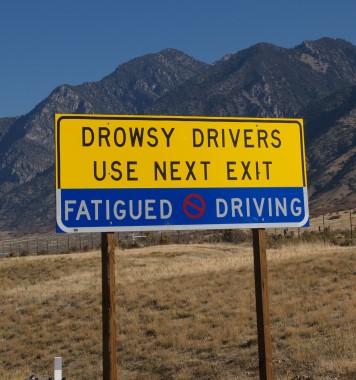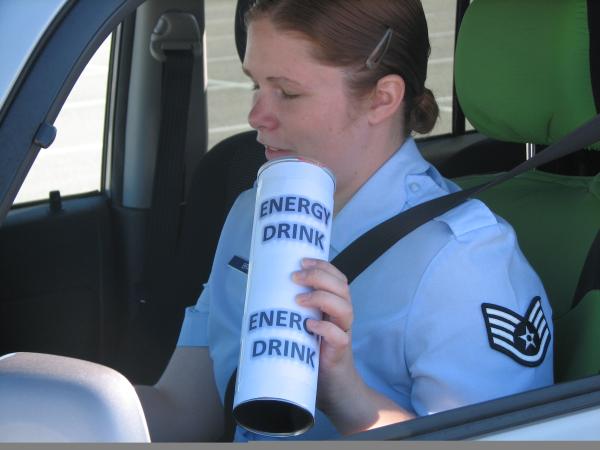It's well known that sleep deprivation contributes to car crashes. We know this – and those at risk, who don't get enough sleep, know precisely how to correct it.
But what if someone exists in a perpetual sleepy state and doesn't realize it? Which might mean going through their work week in that fashion, day after day, and frequently getting behind the wheel. This scenario would be one in which there's increased risk, while nothing's being done to address it.
It's this circumstance that's led researchers from Brigham and Women's Hospital in Boston to investigate. What they concluded was that sleep loss stemming from two different problems "is strongly associated with motor vehicle crashes in the general population, independent of self-reported excessive sleepiness."
The two common problems that produce a poor night's sleep are (1) insufficient sleep duration, where an adult simply didn't get the recommended amount of hours, and (2) obstructive sleep apnea, in which difficulty breathing – constant starting and stopping – undermines both the quality and length of sleep.
Researchers found that "[s]evere sleep apnea was associated with a 123% increased crash risk, compared to no sleep apnea," and that "[s]leeping 6 hours per night was associated with a 33% increased crash risk, compared to sleeping 7 or 8 hours per night," read the study, which was published online in the journal BMC Medicine.
"We found that chronically sleep-deprived individuals don't perceive themselves as being excessively sleepy and thus don't perceive themselves as impaired," said lead author Daniel Gottlieb, MD, MPH, associate physician in the Division of Sleep and Circadian Disorders, in a statement released by BWH. "This resulted in an increased risk of motor vehicle crashes in sleep-deprived individuals."
Data came from the Sleep Heart Health Study, described by the authors as "a community-based prospective cohort study of the cardiovascular consequences of sleep apnea." From an initial cohort of more than 6,400 adults, this study focused on 3,201 adults aged 40–89, 1,745 of which were men and 1,456 were women.
 Individuals reported their sleep performance as well as driving metrics, which among other statistics included miles driven per year and any accidents that may have occurred. Nearly 7 percent of participants reported "at least one motor vehicle crash during the prior year." Also, what researchers found, but couldn't explain, was that sleepy, compromised drivers didn't view themselves as such.
Individuals reported their sleep performance as well as driving metrics, which among other statistics included miles driven per year and any accidents that may have occurred. Nearly 7 percent of participants reported "at least one motor vehicle crash during the prior year." Also, what researchers found, but couldn't explain, was that sleepy, compromised drivers didn't view themselves as such.
"It remains to be determined why many people with severe sleep apnea or short sleep duration in this study did not report excessive sleepiness," the authors wrote, "even though their elevated crash risk suggests that their driving performance was impaired."
Coffee drinking and other forms of caffeine may have affected the results, but researchers didn't raise these stimulants as consequential or overly influential.
While self-reported data can raise eyebrows, especially for skeptics, a study of this kind with a large population would be too unwieldy to accomplish if it required sleep and vehicle monitoring by researchers.
That said, supporting the results, they noted that while "motor vehicle crashes documented in police reports are the gold standard for accident reporting, past studies have shown that self-reporting is fairly accurate when reporting on accidents occurring within the prior year, as was done in this study."
It's no surprise that for many of us self-awareness can be in short supply. Therefore, to mitigate the damage that could take place on the road caused by a sleepy friend or loved one, do everyone a favor when you see someone settling in behind the wheel with eyelids at half-mast: ask them to try to get more shuteye.




